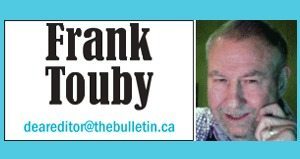Don’t ignore The Lone Ranger movie because a villain in it was portrayed with a hare-lip and politically correct gripers are cruelly focusing on that, which just spotlights any kid similarly afflicted as a victim, which is worse.
The movie takes me back decades, and I’m sure that many older adults see it the same way. Although it was a TV show in the memories of most folks old enough to drink, it started in 1933 on Detroit radio station WXYZ and by the time of my appearance in the world, was nationally syndicated three times each week.
I was born as World War II began and before my father shipped out to an Army posting on Okinawa. When I was old enough to listen to The Long (sic) Ranger on a radio housed in a massive wooden cabinet with a lighted dial, it was compelling.
 He was the penultimate western hero in an era where our heroes were straight-shooting cowboys who defended the weak and (usually) just winged the villains in bringing them to justice. Soon movies brought Hopalong Cassidy and the singing, kissing (ugh!) cowboy Gene Autry.
He was the penultimate western hero in an era where our heroes were straight-shooting cowboys who defended the weak and (usually) just winged the villains in bringing them to justice. Soon movies brought Hopalong Cassidy and the singing, kissing (ugh!) cowboy Gene Autry.
AM radio was supreme in my youth. There were so many great radio programs. Like Baby Snooks, with the hilarious Fanny Brice; Amos ‘n Andy; The Shadow. We didn’t get TV in Miami, where I grew up, until I was seven. And then it was on only a few hours at night; most of the time it was just a test pattern.
So radio has always been primary in my view of electronic entertainment. Especially AM radio. I never worked on FM radio, but was on stations doing talk shows in Honolulu, Miami, Lake Worth, Palm Beach and 40 across Canada as a syndicated commentator for Financial Post.
I did some TV news in Miami and Toronto, but found that boringly restrictive. It’s better nowadays with more latitude for TV journalists than 60- or 90-second canned reports that were standard in earlier news shows.
The Lone Ranger movie is spectacular and the sensitivity and studied restraint maintained by its director just amazing. While you’d expect that blaring throughout the film would be the Lone Ranger’s thrilling theme from “yesteryear”—William Tell Overture—it made a rare appearance at the perfect moment.
And not once did his Indian companion, Tonto, refer to him as “kimosabé” or command his own horse, “Git’em up, Scout!” (There used to be a joke among kids of my era that the pair broke up after the Lone Ranger learned that kimosabé meant sonovabitch.)
The special effects are magnificent. It is a great movie that takes an era of radio-TV history and surprises that minority of us who lived through it by artistic restraint, nodding to history, but making a thoroughly modern show of it.
The Lone Ranger movie reminds me that I grew up and lived much of my life during our North American Golden Age. In those times most mothers stayed home with their kids because a man’s job paid enough to provide for his family. (Women who didn’t want to do that were severely restricted in opportunities, it’s sadly true.)
Labour unions produced a large, strong middle class able to provide university educations for their kids and fuel the economy with their purchases.
Universities weren’t monstrous business operations dealing in degrees and enslaving their graduates to making years’ worth of high-cost repayments for their credentials that too often might not land them the jobs they thought they were being equipped to do.
Corporations didn’t own the legislative landscape, purchase governments and promote warfare to enrich their largest shareholders on the bodies of youth who have few other employment opportunities.
Police wore blue uniforms, not storm-trooper black as they do today.
It’s sad to consider that so many of today’s young people may be robbed of opportunities in a hard-scrabble security state dominated by anti-terror tyranny and globalization, which too easily can mean: Ruled from abroad.
 TheBulletin.ca Journal of Downtown Toronto
TheBulletin.ca Journal of Downtown Toronto


I have lived my life far from Lone Rangers, be them on the radio, TV or big screen: never heard of them before. When I arrived in Canada 6 years ago, I found a world much more different from mine than I expected. Now, reading your very beautiful piece, I realize for the first time, and in a spectacular way, that we are not so entirely different after all. I mean, you speak about a different world, but in terms I would have used to speak about mine. If a stranger like me is so touched by your confession, I wonder how a Canadian or an American of your generation must have felt.
I read your Bulletin since 2007, and I am a competent reader, a professional reader I can say. The Canadian press appeared to me, coming from Europe, somehow uninteresting, even boring. I was pleasantly surprised to find in your little publication the tone and attitude of the press I knew from home. I have learned a lot, I have found out a lot from your Bulletin, things indispensable to a newcomer who wanted to know what was going on in this new city, in this new world. I’ll keep reading you
Alina Brock